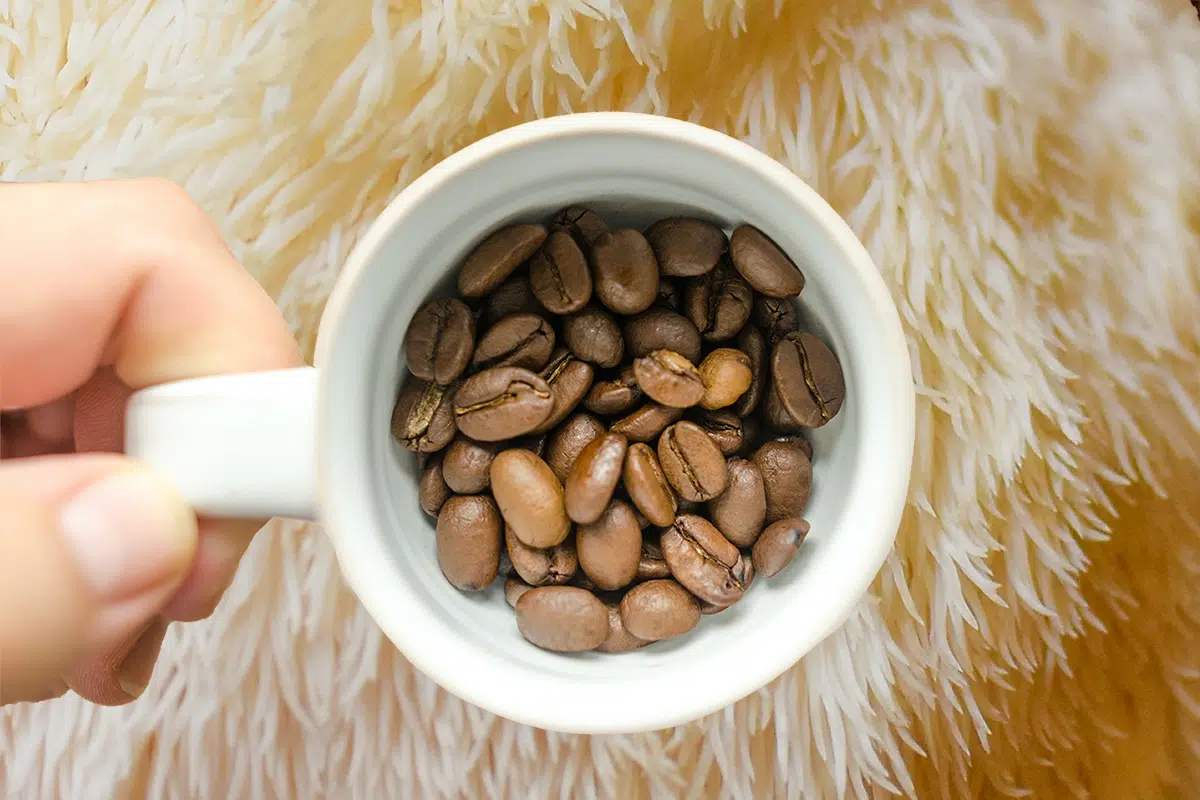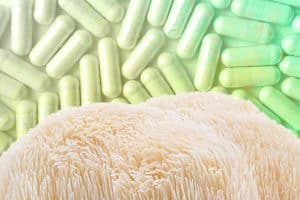Lion’s mane (Hericium erinaceus) is a medicinal and culinary mushroom belonging to the Hericium family. Revered in Traditional Chinese Medicine and scientific literature for its brain, mood, and gut benefits, blends with lion’s mane mushroom and coffee are becoming an increasingly sought-after combination in alternative health communities.
Ahead, learn how to transition to a new morning routine with mushrooms, decrease your caffeine intake, and purchase lion’s mane extracts from reputable brands.
What is Lion’s Mane Mushroom Coffee?
Lion’s mane and varieties in the same family thrive in continents across the northern hemisphere, namely Asia, Europe, and North America. Aesthetically, Hericium mushrooms are easily identifiable and found on low or high parts of decaying hardwood trees. Their white, icicle-like tendrils have earned them the following nicknames:
- Monkey head mushroom (in Chinese)
- Mountain monk mushroom (in Japanese)
- Spine-face
- Hedgehog mushroom
- Coral spine fungus
- Bear’s head tooth
The therapeutic uses of lion’s mane go back centuries. Eastern medicine practitioners traditionally prepare lion’s mane in tea, broth, and tincture formulations to balance Qi (pronounced ch-ee) deficiency. The belief system values the use of medicinal herbs and fungi to restore Qi, or “vital energy,” which flows through the body and disrupts organ systems when someone has too much or too little Qi.
As a natural medicine, lion’s mane is believed to support internal organs, digestive, and central nervous system functioning. As a culinary ingredient, anecdotal reports from mushroom foragers and lovers alike say its stringy consistency makes lion’s mane an ideal substitute for vegetarian crab cakes.
Lion’s mane coffee, on the other hand, is a popular product on the supplement market that some people use in place of heavy-caffeinated beverages for focus and energy. “Taken together in the appropriate dose, Lion’s mane and coffee may have synergistic health benefits,” write Dr. Lee Dorfman, D.O., and Ben Cassiday in an email to DoubleBlind. Dr. Dorfman is an anesthesiologist and licensed physician in Oregon who reviews applications and advises best practices for the Oregon Medical Marijuana Program. Cassiday is a Managing Member of Psymbio. The two collaborated to answer questions for this article.
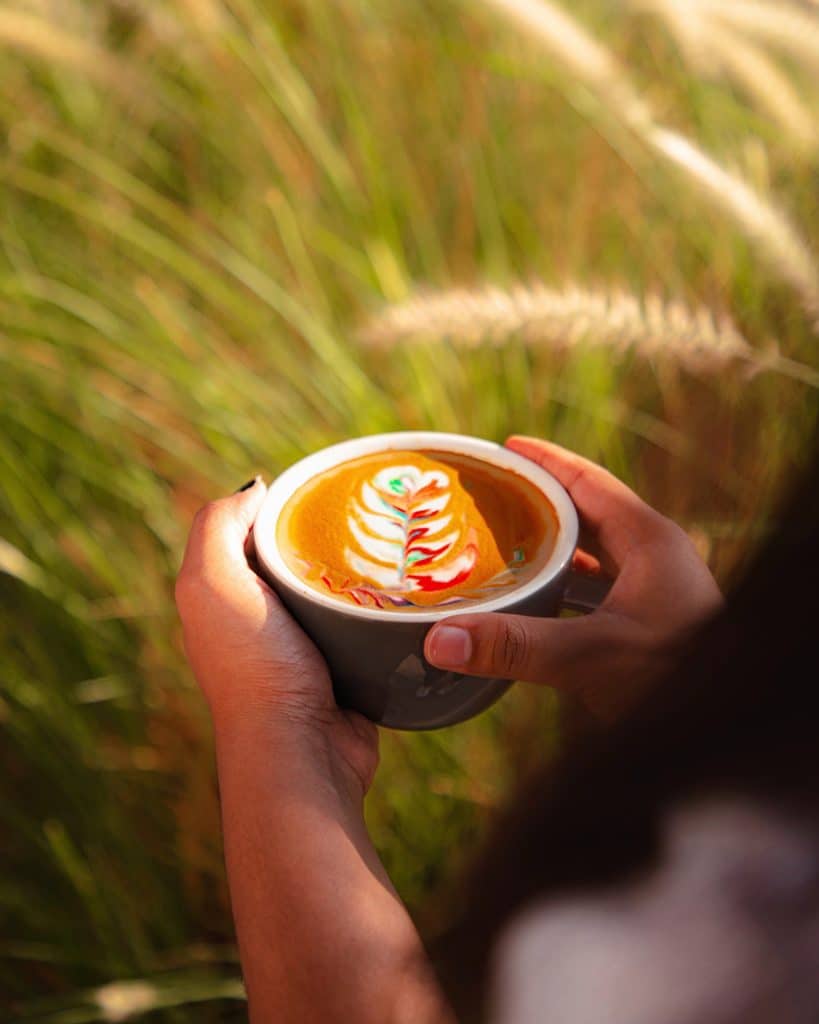
Lion’s Mane Coffee Benefits
Caffeine energizes the brain and body when consumed mindfully, making lion’s mane coffee a powerful beverage rich in antioxidants (from two sources). Anecdotally, people say that lion’s mane coffee creates a “tingling” brain sensation that facilitates mental clarity. Yet, it is important to mention that there is little clinical research exploring the synergy between caffeine and lion’s mane. Instead, knowledge about the health effects of lion’s mane comes from its history of traditional use, emerging—yet often experimental—science, and personal anecdotes.
How to Grow Shrooms Bundle
Take Both of Our Courses and Save $90!
Dr. Dorfman uses lion’s mane extract, among other mushroom varieties, in his daily routine. He attributes the therapeutic benefits of lion’s mane to the following bioactive compounds:
- Hericenones (terpenoids) from the fruiting body
- Erinacines (terpenoids) from mycelium
- Polysaccharides (beta-glucans) from the whole mushroom
“These compounds can cross the blood-brain barrier to increase secretion of nerve growth factor (NGF),” write Dr. Dorfman and Cassiday, “an important chemical in the all-over maintenance of nerve cells.” Mushrooms like lion’s mane may have antioxidative, anti-inflammatory, and neuroprotective properties. Specifically for the central nervous system, there may be an association between lion’s mane and enhanced NGF expression. The early findings, based on research from animal models, suggest an association between mushrooms and improved cognitive health (mood and memory).
The bioactive compounds found in lion’s mane may also be linked to these health-promoting effects:
- Antibiotic for stomach ulcers
- Anticancer
- Antidepressant and anxiety
- Blood sugar regulation
- Gut and immune health
Although much of the experimental research relies on early findings from animal and test tube studies, researchers recommend further investigation for treating and preventing chronic human illness with lion’s mane. Although, the trend of combining lion’s mane and coffee is relatively new in the health and wellness scene.

Lion’s Mane Mushroom Coffee Side Effects
The duo recommends that people consult with a healthcare provider before supplementing with lion’s mane. To err on the safe side, he encourages people who are pregnant or nursing to avoid dosing lion’s mane. Speaking about its side effects, Dr. Dorfman and Cassiday say that the mushroom may slow blood clotting or interfere with blood sugar control. Those with a bleeding disorder, are set to have surgery, or take regular diabetes medications should speak with a provider to rule out potential drug interactions.
Otherwise, lion’s mane is considered a non-toxic mushroom at high doses, that is, based on animal studies. An isolated report from 2003 indicates the possibility of allergy-related breathing issues from lion’s mane, so those who don’t tolerate mushrooms should proceed with caution.
Side effects from lion’s mane coffee also extend to caffeine overdose or withdrawal, both of which are capable of causing increased heart rate, anxiety, insomnia, and general restlessness. Dr. Dorfman and Cassiday suggest decaffeinated coffee, white, or green tea for individuals with caffeine sensitivity. “Tea also contains theanine, a compound which has been shown to reduce the jittery side effects and crash associated with coffee as well as improve cognitive abilities,” they say.
Incidentally, drinking lion’s mane in decaf coffee or teas with lower caffeine content may be a subtle transition for long-time coffee drinkers looking to get away from caffeine.
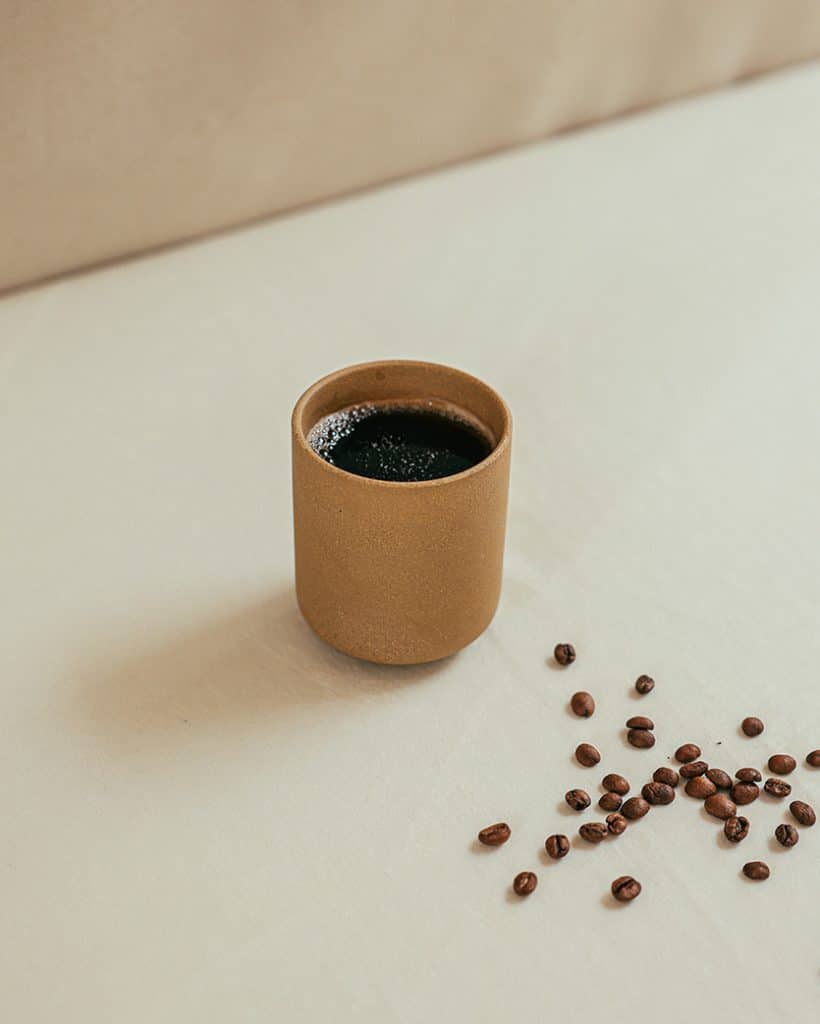
Best Lion’s Mane Coffee
The first sip of lion’s mane coffee may be the first time many buyers try medicinal mushrooms. So, look for products sourced from fruit bodies and mycelium bodies, not myceliated grain. According to Dr. Dorfman, this is an important distinction. Full-spectrum formulas, which contain compounds from the entire mushroom life cycle, are better than extracts that only feature myceliated substrate (what the mushroom attaches to as it grows).
To ensure product safety and quality, the best lion’s mane coffee brands include third-party lab results which test for heavy metals, pesticides, fillers, and additives. Look for the potency content of the therapeutic compounds, primarily beta-glucans, hericenones, erinacines, and triterpenes, write Dr. Dorfman and Cassiday.
“Don’t be tricked by a low price,” they warn. The best products test for quality control, which is reflected in the price.
Besides choosing high-quality lion’s mane, buyers will also want to be mindful of the product formulation, as some absorb differently than others. If you’re going for lion’s mane powders, the duo recommends boiling them in water or soluble alcohol to aid the digestive tract in breaking down chitin, a polysaccharide in lion’s mane that essentially acts as a dietary fiber. Since most humans don’t have the necessary enzymes to synthesize chitin, you can accidentally miss the beneficial compounds if you overlook the bioavailability factor. For this reason, Traditional Chinese Medicine notoriously uses hot liquid to facilitate the absorption of mushroom therapeutic compounds.
Dr. Dorfman and Cassiday also say that tinctures are typically less potent than powders unless the lab results show otherwise. That said, tinctures may absorb quicker when consumed sublingually since they pass from blood vessels in the mouth directly into the bloodstream (instead of passing through the liver and then onto the digestive tract).
Finally, as with any supplement, be leery of brands that make bold health claims. Functional mushrooms for focus and energy aren’t approved under FDA regulation, and there aren’t standards in place for overseeing lion’s mane quality control.
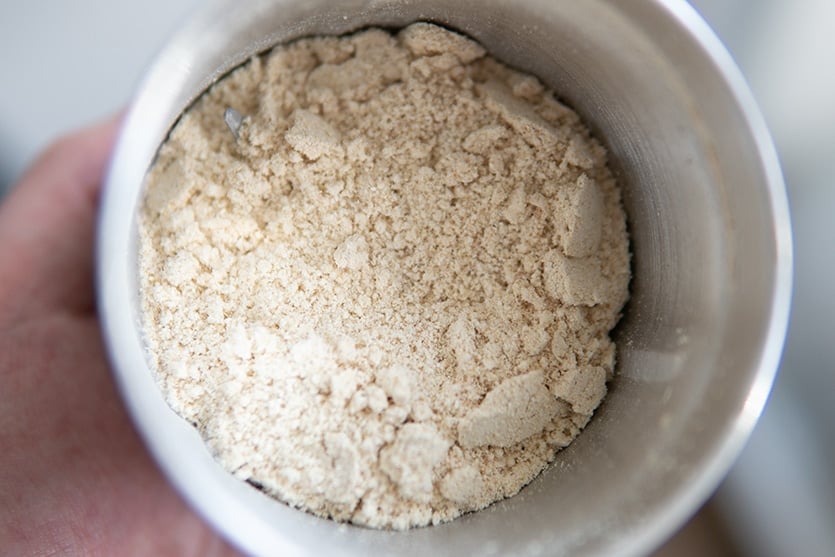
Lion’s Mane Coffee Recipe
Depending on the brand you purchase, you can find everything from minimally caffeinated versions to regular coffee beans and instant mixes with lion’s mane. Many of the formulations on the market also include functional mushrooms like chaga, reishi, or cordyceps.
For the sake of the recipe below, we’ll assume you’re starting with lion’s mane powder.
Materials
Teapot or French press
8-10 oz. hot water
Preferred ground coffee/tea
1 tsp lion’s mane
Splash of milk/sweetener of choice
Recipe
- For tea, combine the lion’s mane and dried herbs before steeping. Do the same for the ground coffee before plunging the French press.
- Let the lion’s mane and coffee/tea mixture stand for five minutes.
- Swirl in any desired add-ons, bring the mug to your nose, inhale, and sip slowly.
Summary
Lion’s mane coffee is a medicinal beverage that supports brain health, digestion, immune function, and more. The mushroom has been used for thousands of years in Traditional Chinese Medicine, and many find the functional benefits of lion’s mane a welcome alternative to short-acting energy boosters. When combined with low to moderate amounts of caffeine, either from coffee or tea, supplementing with lion’s mane may be one way to ward off brain fog, short-term memory issues, and fatigue.

DoubleBlind is a trusted resource for news, evidence-based education, and reporting on psychedelics. We work with leading medical professionals, scientific researchers, journalists, mycologists, indigenous stewards, and cultural pioneers. Read about our editorial policy and fact-checking process here.

DoubleBlind Magazine does not encourage or condone any illegal activities, including but not limited to the use of illegal substances. We do not provide mental health, clinical, or medical services. We are not a substitute for medical, psychological, or psychiatric diagnosis, treatment, or advice. If you are in a crisis or if you or any other person may be in danger or experiencing a mental health emergency, immediately call 911 or your local emergency resources. If you are considering suicide, please call 988 to connect with the National Suicide Prevention Lifeline.
